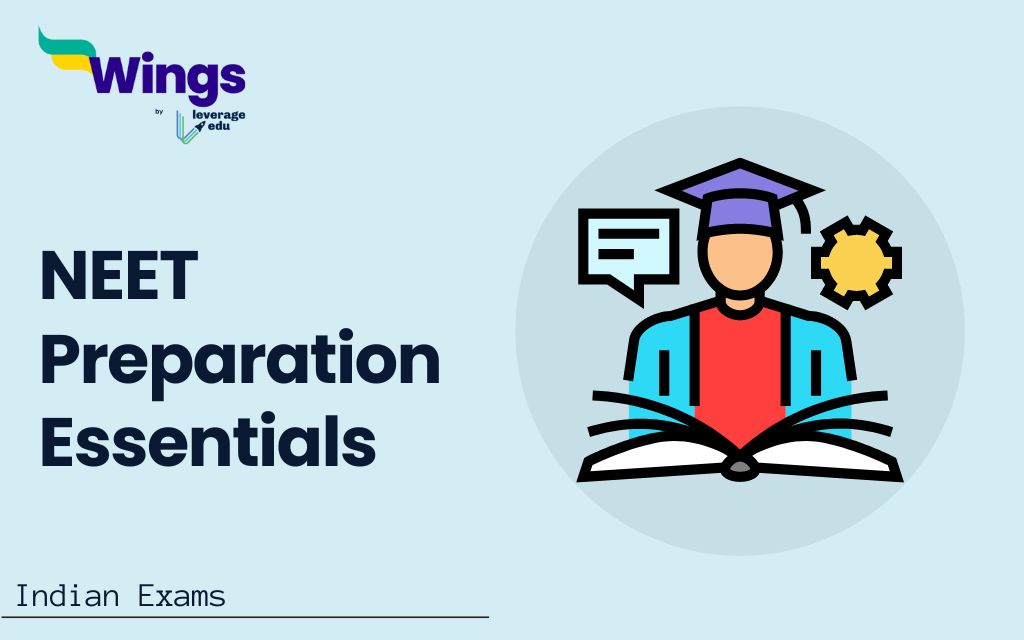Ideally, NEET prep starts in Class 11 (two years before the exam) to align with regular schoolwork. However, many students begin intense studying in Class 12. The best starting time depends on your individual strengths and weaknesses in each subject, how much syllabus you’ve covered, and your understanding of the exam format.
The National Eligibility Entrance Test (NEET) is a highly competitive exam for aspiring medical professionals in India. Students often think about the best time to begin their NEET preparation. The truth is, there’s no one-size-fits-all answer. This article aims to be a one-stop guide for NEET 2025 aspirants. It covers everything from getting started with note-taking to last-month strategies.
Contents
NEET Preparation Essentials:Class 11th
Many students begin their NEET journey in Class 11. This initial stage is all about familiarizing yourself with the exam. Here’s how to make a strong start:
- Thoroughly review the NEET UG syllabus, exam pattern, and structure. This will give you a roadmap for your studies.
- Analyze past NEET question papers to understand the types of questions asked and the weightage of different topics.
- While attending school regularly, dedicate focused time for NEET preparation. Develop a study schedule that accommodates both schoolwork and NEET studies.
- Consider joining a coaching institute or enrolling in a NEET test series. This can provide valuable expert guidance and help you assess your preparation level.
NEET Preparation Essentials:Class 12th
Class 12 is an important year for board exams. Here’s how to effectively manage both NEET and board preparations:
- Create a daily schedule that clearly allocates time for both board exams and NEET preparation. Stick to this routine as much as possible.
- With the board exams closer, prioritize their preparation. However, don’t completely neglect your NEET studies.
- Since Physics, Chemistry, and Biology are common subjects for NEET and board exams, utilize this overlap to your advantage.
- As the board exams approach, shift your focus to solving past NEET papers and taking regular mock tests. This helps refine your time management skills and identify areas for further improvement.
- Supplement your knowledge with recommended NEET preparation books used by many successful aspirants. These can offer additional insights and practice problems.
NEET Preparation Essentials:Drop Year
Students who have already attempted NEET (droppers) have a valuable advantage: experience. Here’s how to turn that experience into success:
- Honestly assess your previous attempt. Identify areas where you made mistakes and topics that need further strengthening.
- Reflect on your past preparation strategy and identify areas for improvement. Refine your approach to address shortcomings.
- Focus heavily on the areas where you struggled in the previous attempt. Practice these topics diligently through targeted exercises and mock tests.
Additional Tips for All Stages
Consistent and focused effort is important to NEET success. By following these guidelines and tailoring them to your individual needs and pace, you can significantly increase your chances of achieving your NEET goals.
- The NEET journey can be long and challenging. Develop a positive mindset and find ways to stay motivated throughout your preparation.
- Prioritize a healthy lifestyle. Ensure adequate sleep, nutritious meals, and regular exercise to maintain peak physical and mental health.
- Don’t hesitate to take help from teachers, mentors, or online forums. Discussing your doubts and concerns can be extremely beneficial.
Related Blogs
| NEET Exam | NEET Preparation Tips |
| Medical Courses Without NEET | How to Study Physics for NEET |
| NCERT Books for NEET | Botany Syllabus for NEET Exam |
FAQs
NCERT direct questions have been asked frequently in the fields of chemistry, biology, and physics. NCERT texts must unquestionably be read diligently while preparing. Apart than this, it is not necessary to read every book on the list; any reference book other than NCERT would do as it is adequate for the preparation.
To start preparing for NEET, first, familiarize yourself with the syllabus and exam pattern. Create a study schedule allocating time for each subject daily. Use NEET-specific study materials, practice previous years’ question papers, and consider joining a coaching institute or online platform for guidance.
Cracking NEET in one month is challenging but not impossible with focused preparation. Prioritize topics based on their weightage in the exam, practice regularly, and revise consistently. Utilize mock tests and solve previous years’ papers to gauge your preparation level. Stay motivated and maintain a disciplined study routine for success.
This was all about the “NEET Preparation Essentials”. For more such informative blogs, check out our NEET Exams Section, or you can learn more about us by visiting our Indian exams page.


 One app for all your study abroad needs
One app for all your study abroad needs












 60,000+ students trusted us with their dreams. Take the first step today!
60,000+ students trusted us with their dreams. Take the first step today!